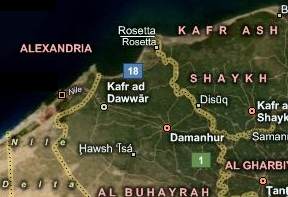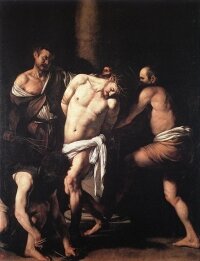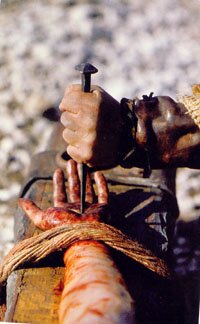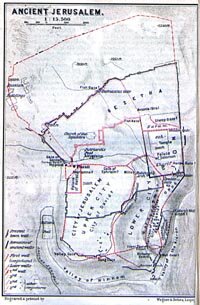In the Bible, Lot (
לוֹט "Hidden, enclosed, covering") was the nephew of the patriarch, Abraham (previously named Abram). He was the son of Abraham's brother Haran. (Gen. 11:27). Both Christians and Muslims revere Lot as a righteous man of God. As a son of David, Jesus Christ is a descendent of Lot through David's great-grandmother Ruth, who is descended from Lot's son Moab.
The further describe Jesus' being a descendent of Lot, Boaz was a rich landowner who noticed Ruth the widowed Moabite daughter-in-law of Naomi, a relative of his, gleaning grain from his fields. He soon learns of the difficult circumstances her family is in and Ruth's loyalty to Naomi. In response, Boaz invites to her to eat with him and his workers regularly as well as deliberately leaving grain for her to claim while keeping a protective eye on her.
Eventually, Boaz and Ruth strike up a friendship which leads to Ruth asking him to marry her. Boaz accepts, but cautions that there is a family member who has a superior right to her hand in marriage. However, he arranges a meeting with the relative and convinces him to buy Naomi's husband's land while forfeiting his right to marry Ruth to avoid complicating his inheritance with his existing heirs.
Although Boaz is noted to be much older than Ruth in the Biblical account and he marries her for Naomi's sake, most dramatic adaptations have Boaz as a handsome young man so as to enhance the romantic nature of the story.
Their son was Obed, father of Jesse, and grandfather of David (cf. Ruth 4:21-22). The
genealogy of Jesus further describes the lineage of Jesus from Adam to his legal father, Joseph (see also Matt 1:2-16).
The story of Lot is told in the Book of Genesis 11-14, 19.
Lot followed his uncle from Haran. He accompanied Abram and his family in his journeys to Egypt.
When Abram traveled to the Land of Canaan at the command of God, Lot accompanied him. (Gen 12:1-5). Abram had always a great affection for him, and when they could not continue longer together in Canaan because they both had large flocks and their shepherds sometimes quarelled (Gen 13:6,7), he gave Lot the choice of his abode. Lot went southeast to plains near the cities of Sodom and Gomorrah, since the land there was well watered. (Gen. 13:10-12).
About eight years after this separation, Chedorlaomer and his allies attacked the kings of Sodom and the neighbouring cities, pillaged Sodom, and took many captives, including Lot. Abraham armed his servants, pursued the confederate kings, and overtook them near the springs of Jordan. He recovered the spoils they had taken and brought back Lot with the other captives. Abraham was offered a reward by the King of Sodom, but refused even a shoelace.
In Gen. 19, when God decided to overturn and destroy the five cities of the plain, he sent angels to rescue Lot and his family. The men of Sodom sought to rape (in some translations, meet) the angels (Gen. 19:5). Lot offers the men his virgin daughters instead (Gen. 19:8), but the men are not interested.
When the sins of the Sodomites and of the neighboring cities had called down the vengeance of God to punish and destroy them, two angels (presumed to be Michael and Gabriel) were sent to Sodom to forewarn Lot of the dreadful catastrophe about to happen. The angels took Lot, his wife, and his daughters by hand and drew them forcibly out of their house, saying, "Save yourselves with all haste. Look not behind you. Get as fast as you are able to the mountain, unless you be involved in the calamity of the city." Lot entreated the angels, who consented that he might retire to Zoar (Hebrew: צער Tso`ar meaning "small" or insignificant Genesis 19:21-23 — a city at the southeast end of the Dead Sea grouped with Sodom and Gomorrah as being one of the 5 cities slated for destruction by God; spared at Lot's plea as his place of refuge (see also Genesis 14:1-3). His wife, looking back on Sodom, was turned into a pillar of salt.
More...
 Sodom and Gomorrah Parts 1-3
Sodom and Gomorrah Parts 1-3




























